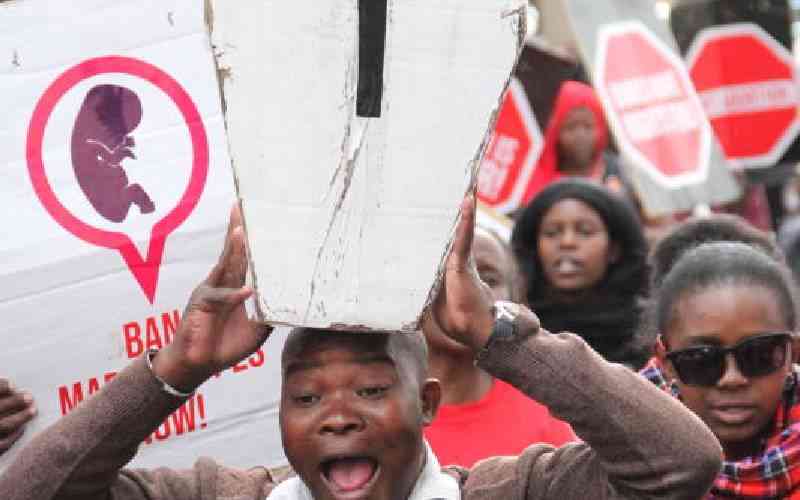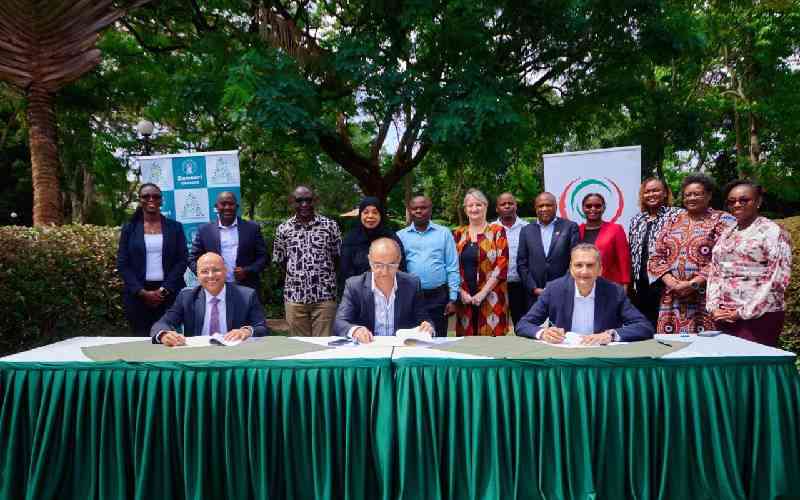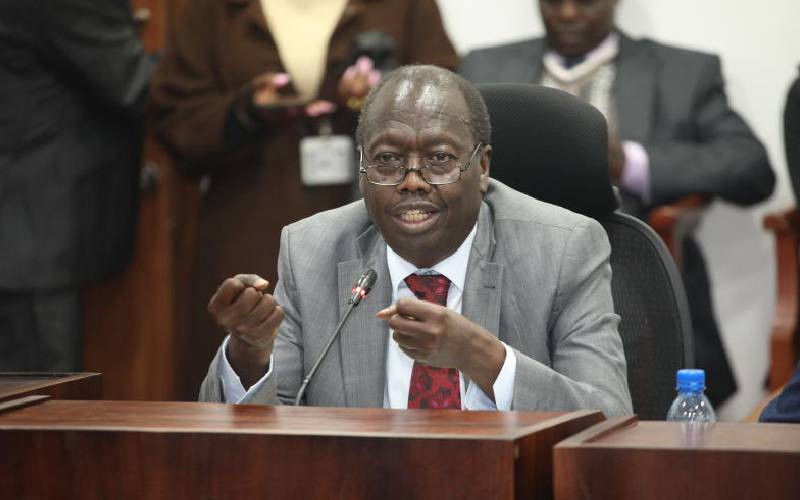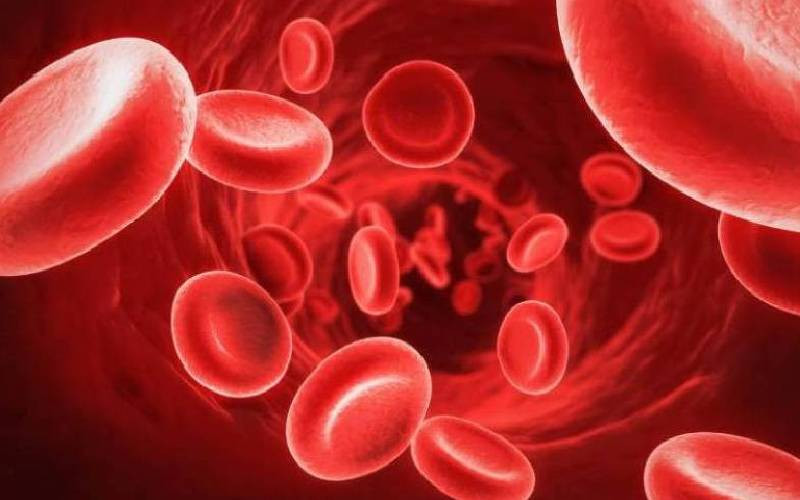
The fight to stop the spread of the coronavirus got a major boost yesterday when the Oxford/AstraZeneca vaccine was approved for use in the United Kingdom.
This is good news for Kenya that is currently in Phase II of clinical trials for the same vaccine. The Kenyan version is being coordinated by Kemri-Wellcome Trust in collaboration with Oxford University.
Close to 400 participants had been chosen to participate in the trials that started two months ago and which are expected to run for 24 months.
"Vaccines which work in one population do not necessarily work in all populations. This has been witnessed in the case of vaccines against malaria, rotavirus and Ebola. To ensure Kenyans can benefit from the vaccine if it proves successful, it is important to assess its performance among Kenyan volunteers," the Kenya Medical Research Institute said in a press statement in October.
The same vaccine was being tried in Brazil, UK and South Africa. With news that it has proven to be safe in the UK, hope now hangs on how it will perform in developing countries.
The vaccine is considered vital for mitigation against coronavirus in developing countries because it is cheaper to make, and easier to store for long periods compared to the vaccines developed by Pfizer and Moderna.
It only needs normal refrigeration to remain viable, which makes it easier to distribute. AstraZeneca’s Chief Executive Pascal Soriot also said the vaccine should be effective against the new variant of coronavirus that was found to be more contagious with cases reported in the UK and the US.

Vials with a sticker reading, "COVID-19 / Coronavirus vaccine / Injection only" and a medical syringe are seen in front of a displayed AstraZeneca logo in this illustration taken October 31, 2020. [FIle, Dado Ruvic, Illustration]
The first doses of the AstraZeneca vaccine will be administered in the UK from Monday.
Approval in the UK is a major sign of confidence in the vaccine for Kenya and others who have ordered the Oxford vaccine, but it is the European Union's consent that will make it accessible to Africa.
Hours before the UK approval was announced, the European Medicines Agency (EMA) had said it was unlikely to approve the vaccine in January as had been expected.
EMA Deputy Executive Director Noel Wathion told the media in Brussels that AstraZeneca had not provided enough data to warrant approval.
“At the moment, AstraZeneca has only provided data on their clinical trials to the European Medicines Agency,” said Wathion.
Additionally, he said, the vaccine developers were yet to submit a formal application, a necessary condition for the vaccine to be recommended.
The agency, he said, required more data and once that is done a formal application can be made–thus making it 'improbable' for it to be approved in January.
The developments in the EU are more important for Kenya, which has booked vaccines through the World Health Organisation’s supported Covax Facility
WHO works closely with EMA through the International Coalition of Medicines Regulatory Authorities (ICMRA) hence an EU approval will almost automatically open distribution to the Covax beneficiaries.
With the EU approval pushed beyond January, it means more waiting for Kenya, which expects doses enough to cover 1.4 million people by June.
Early this month, the WHO promised that the Covax Facility will deliver doses enough to cover three per cent of the population in each of the 190 participating countries, including Kenya.
24 million free doses
Through this arrangement, Kenya is expecting 24 million free doses, the bulk of which WHO says will be delivered in the second half of 2021.
Additionally, Kenya says it has ordered another 12 million doses which, depending on availability, WHO says may be delivered in 2022.

Kenyans wearing face masks to protect themselves from the spread of the deadly coronavirus. [Elvis Ogina, Standard]
“Our preferred choice is the Oxford/AstraZeneca vaccine due to ease of transport and storage, and it is much cheaper than the other alternatives,” said Health Director-General Patrick Amoth.
But even as new vaccines ignite hope that the new year will not be full of messages of coronavirus-related deaths and hospital admissions, global health leaders are still urging people to adhere to the containment protocols such as maintaining social distancing and wearing masks.
 The Standard Group Plc is a multi-media organization with investments in media
platforms spanning newspaper print
operations, television, radio broadcasting, digital and online services. The
Standard Group is recognized as a
leading multi-media house in Kenya with a key influence in matters of national
and international interest.
The Standard Group Plc is a multi-media organization with investments in media
platforms spanning newspaper print
operations, television, radio broadcasting, digital and online services. The
Standard Group is recognized as a
leading multi-media house in Kenya with a key influence in matters of national
and international interest.











